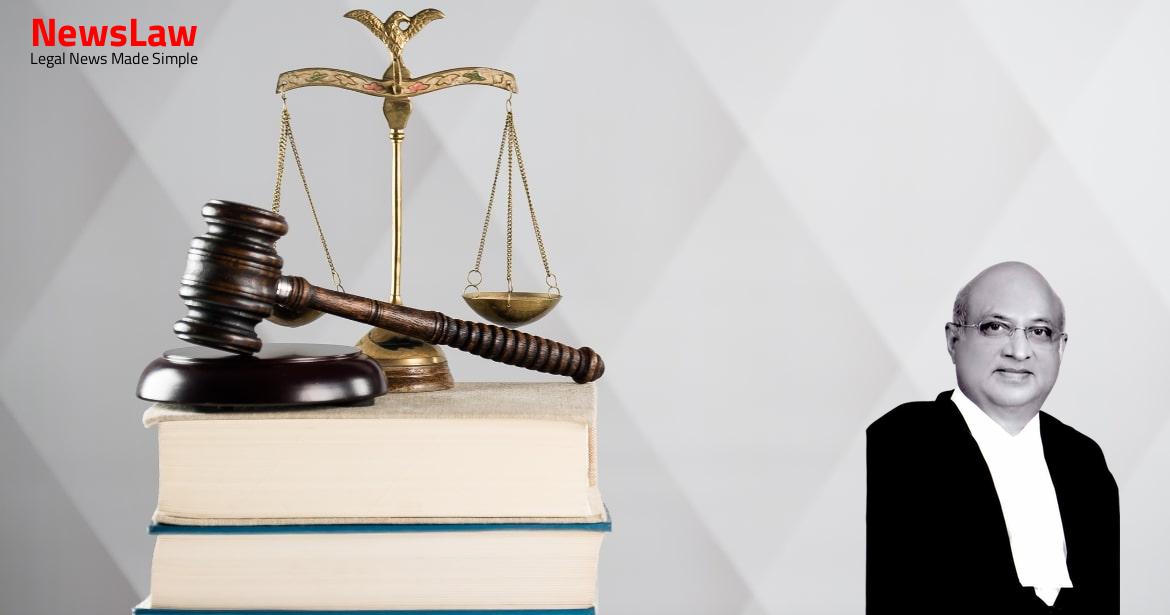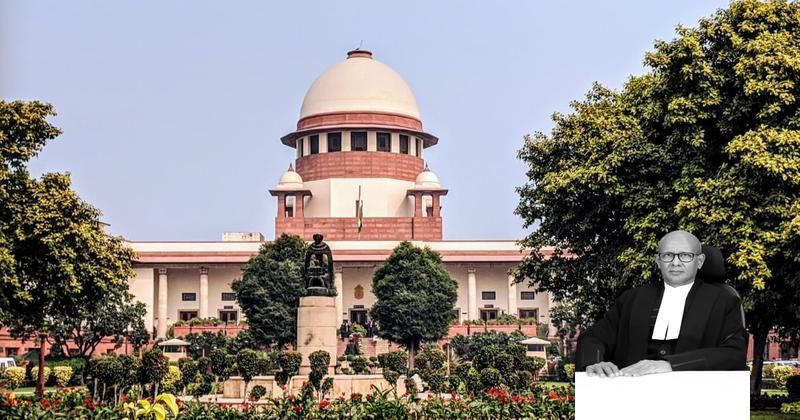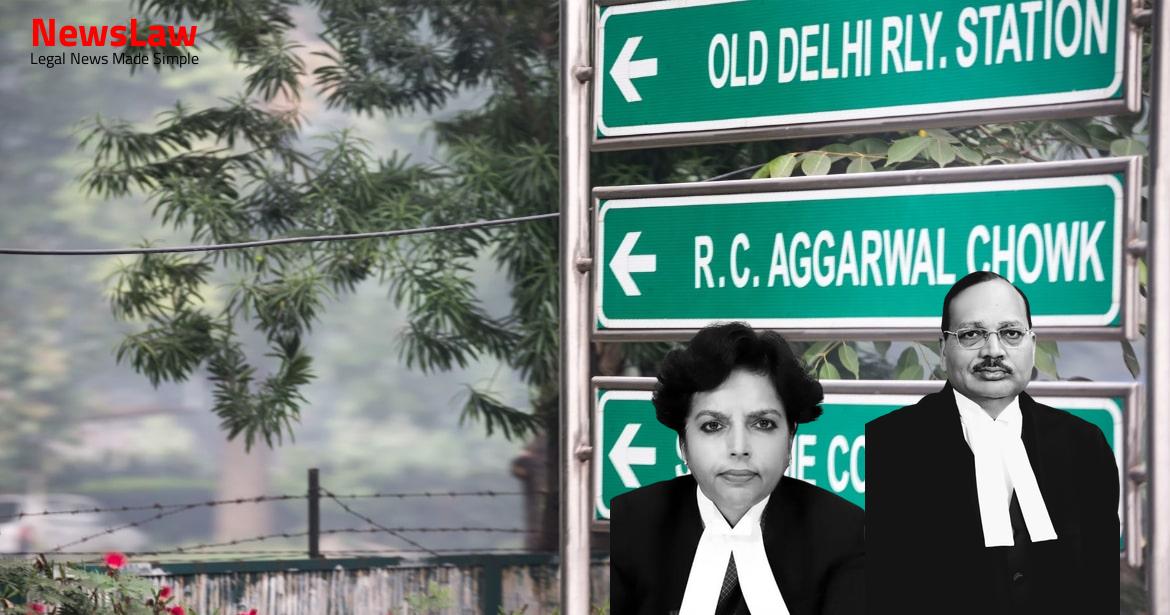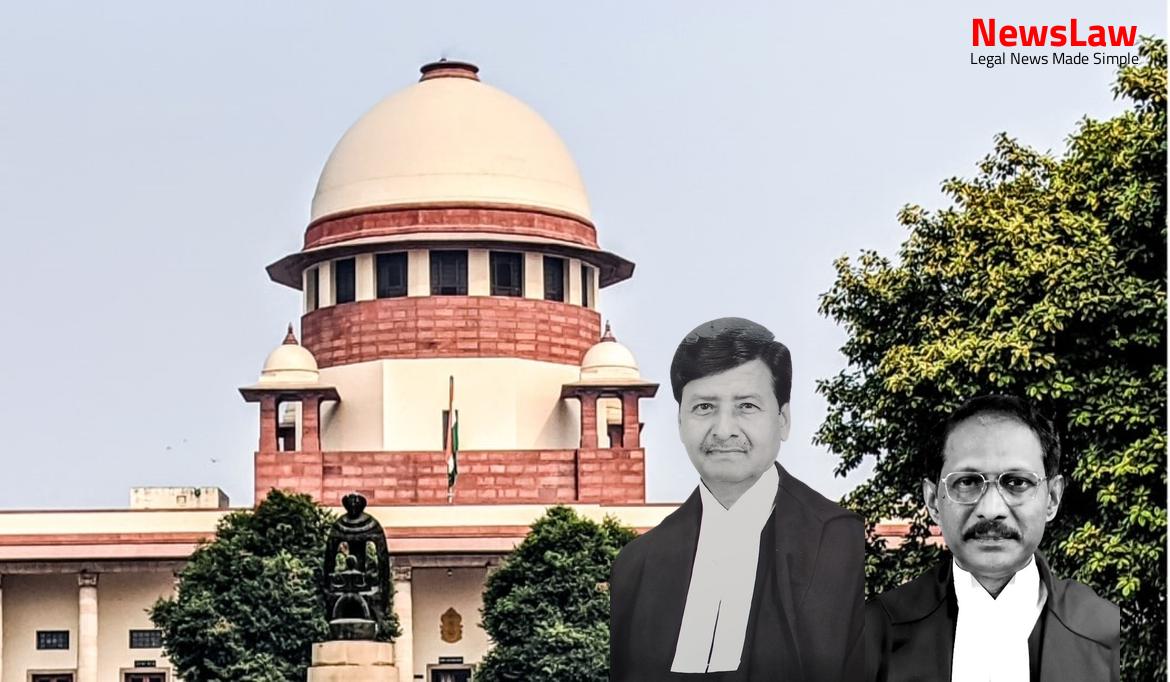In a significant legal development, the Supreme Court of India has delivered a crucial judgment regarding unauthorized use of electricity. The case involved a dispute between the West Bengal State Electricity Distribution Company Limited and a company accused of tampering with the meter to steal energy. The Supreme Court’s decision has far-reaching implications for cases of electricity theft and unauthorized consumption. Find out more in the summary below.
Facts
- The appellant, West Bengal State Electricity Distribution Company Limited, filed a civil appeal against the judgment of the High Court of Calcutta.
- The High Court allowed the intra-court appeal of the respondent company in the case.
- The appellant alleged theft of energy by the respondent company by tampering with the meter.
- Inspection revealed discrepancies, leading to provisional assessment under Section 126(1) of the Electricity Act, 2003.
- A criminal complaint was also lodged against the respondent.
- The provisional assessment amount was challenged in a writ petition before the High Court.
- The appellant’s officials conducted an inspection at the respondent’s premises based on a supply agreement.
- The inspection team found foreign material inside the meter.
- A criminal case was registered and a charge-sheet submitted against the respondent company.
- Issues regarding jurisdiction of the Assessing Officer in making the provisional assessment were raised in the writ petition.
- The learned single Judge directed the State Government to appoint a member of the inspection team as an Assessing Officer for a fresh assessment.
- The Distribution Company did not produce any material to prove the Assessing Officer was part of the inspection team.
- The fresh assessment order made in compliance with the single Judge’s directions is being questioned in a pending appeal through an interlocutory application by the respondents.
- In response to the interlocutory application, the Division Bench of the High Court allowed for further actions to be taken.
- The appellate court held that the assessment and demand made in provisional assessment proceedings did not follow Section 126(1) of the Act, leading to the quashing of the same.
- A member of the inspection team was appointed as an Assessing Officer by the State Government, who provisionally assessed the value of un-metered electricity consumption and made a final assessment after providing an opportunity for objections.
Also Read: Quash Petition Dismissed: Case Summary of accused nos. 5 to 7
Arguments
- Power under Section 126(1) of the Act to make provisional assessment does not depend on whether the consumer seeks restoration of supply after disconnection.
- Theft of energy must be proven beyond reasonable doubt and mens rea is essential to prove guilt of the accused before the Special Court.
- The High Court misconstrued provisions under Sections 126, 135, and 154 of the Act resulting in the appeal being allowed and the assessment order under Section 126(1) being quashed.
- A high degree of proof is not required for assessing loss of energy under Section 126(1) of the Act.
- Authorities can make provisional and final assessment to recover loss of energy even if there is an allegation of theft of energy by the consumer and a complaint has been lodged with the police.
- In all cases covered by Section 135 of the Act, authorities can make provisional assessment under Section 126.
- Unauthorized use of energy and theft of energy are two different aspects covered under different provisions of the Act.
- Power conferred for provisional assessment under Section 126(1) of the Act is confined to cases of unauthorized use of energy, while theft of energy is to be prosecuted under Section 135(1)(a) of the Act.
- The findings recorded by the High Court were supported by the argument that there is a distinction between unauthorized use of energy and theft of energy.
- Counsel for the respondents cited the judgement of the single Judge of Madhya Pradesh High Court in The Hotel Adityaz Limited v. Madhya Pradesh Kshetra Vidyut Vitran Company Limited, Bhopal & others to support their plea.
- In cases where authorities prove the guilt of the accused, the Special Court is empowered to determine civil liability under sub-section (5) of Section 154 of the Act.
- In instances where power supply is disconnected and there is a request for restoration, authorities can make assessments under Section 126(1) of the Act.
Also Read: Hyatt Hotel vs. The State of India: Corporate Liability and Vicarious Responsibility
Analysis
- Unauthorized use of electricity encompasses all misuse or malpractices related to electricity.
- In cases of unauthorized use not amounting to theft, authorities can assess the loss of energy under Section 126(1) of the Act.
- For cases of unauthorized use amounting to theft, a complaint can be lodged under Section 135(1) of the Act with civil liability determined by the Special Court under Section 154(5).
- The distinction made by the High Court between Section 126 and Section 135 was deemed erroneous as both proceedings can operate in parallel.
- The Electricity Act, 2003, aimed to focus on theft of electricity and introduced provisions regarding unauthorized use of energy not amounting to theft.
- The Act empowers authorities to disconnect power supply and make provisional and final assessments under Section 126(1), even in cases of unauthorized use through theft.
- The term ‘unauthorized use of energy’ has a broad meaning and includes violations of supply terms and conditions.
- Special Courts have the authority to determine civil liability in cases involving theft of electricity under Section 135 and unauthorized use of energy under Section 126.
- The power to disconnect supply and assess loss of energy lies with authorities in cases of unauthorized use through theft without requiring a complaint under Section 135.
- Consumption exceeding the sanctioned load falls under unauthorized use of electricity, with civil liability determined by the Special Court.
- Section 126 of the Act allows for provisional assessment of unauthorized use of electricity after inspection of premises or equipment.
- The assessing officer can make a provisional assessment and serve it on the person in occupation of the premises.
- The person served with the provisional assessment can file objections and a final assessment must be made within thirty days.
- If unauthorized use of electricity is found, the assessment will cover the entire period of unauthorized use.
- The assessment rate will be twice the tariff applicable for the relevant category of services.
- The Act also allows for search and seizure of devices, instruments, and premises related to unauthorized use of electricity.
- The occupant must be present during the search, and a list of seized items must be provided.
- The supplier can disconnect the supply line upon detection of theft of electricity.
- Restoration of supply can be done upon deposit or payment of the assessed amount by the consumer.
- Excess amount deposited by the consumer must be refunded with interest if the final civil liability is less than the deposited amount.
- Special Court has the power to determine civil liability under Section 154(5) of the Act, even if a complaint is lodged.
- There is authority to make provisional assessment/final assessment under Section 126 of the Act.
- The case of Executive Engineer Southern Electricity Supply Company of Orissa Limited (SOUTHCO) & Another v. Shi. Seetaram Rice Mill, (2012)2 SCC 108, discusses the scope of Explanation to Section 126(b)(iv) of the 2003 Act.
- In a criminal proceeding, the guilt of the accused must be proven beyond reasonable doubt
- Establishing mens rea is also necessary in a criminal case
- Strict proof beyond reasonable doubt is not required for assessing liability under Section 126(1) of the Act
Also Read: State of West Bengal vs. Respondents: Abetment of Suicide Case
Decision
- The civil appeal is allowed.
- The judgment and order dated 18.12.2017 passed by the High Court of Calcutta in F.M.A. No.520 of 2017 and the corrected order dated 07.02.2018 are set aside.
- No order as to costs.
- Excess amount, if any, deposited by the petitioner, is to be refunded to the consumer.
Case Title: WEST BENGAL STATE ELECTRICITY DISTRIBUTION COMPANY LTD. Vs. M/S ORION METAL PVT. LTD.
Case Number: C.A. No.-006547-006547 / 2019



